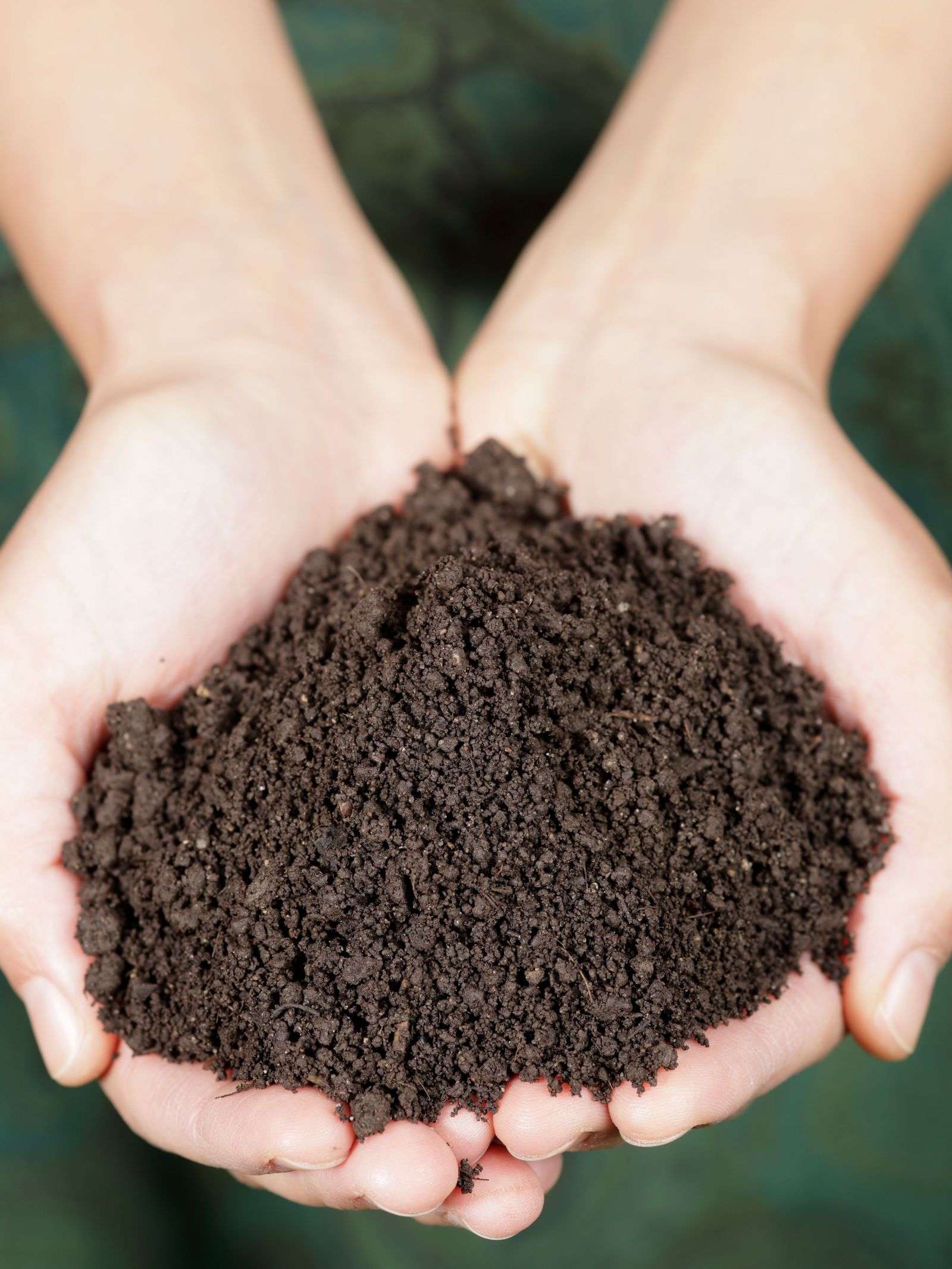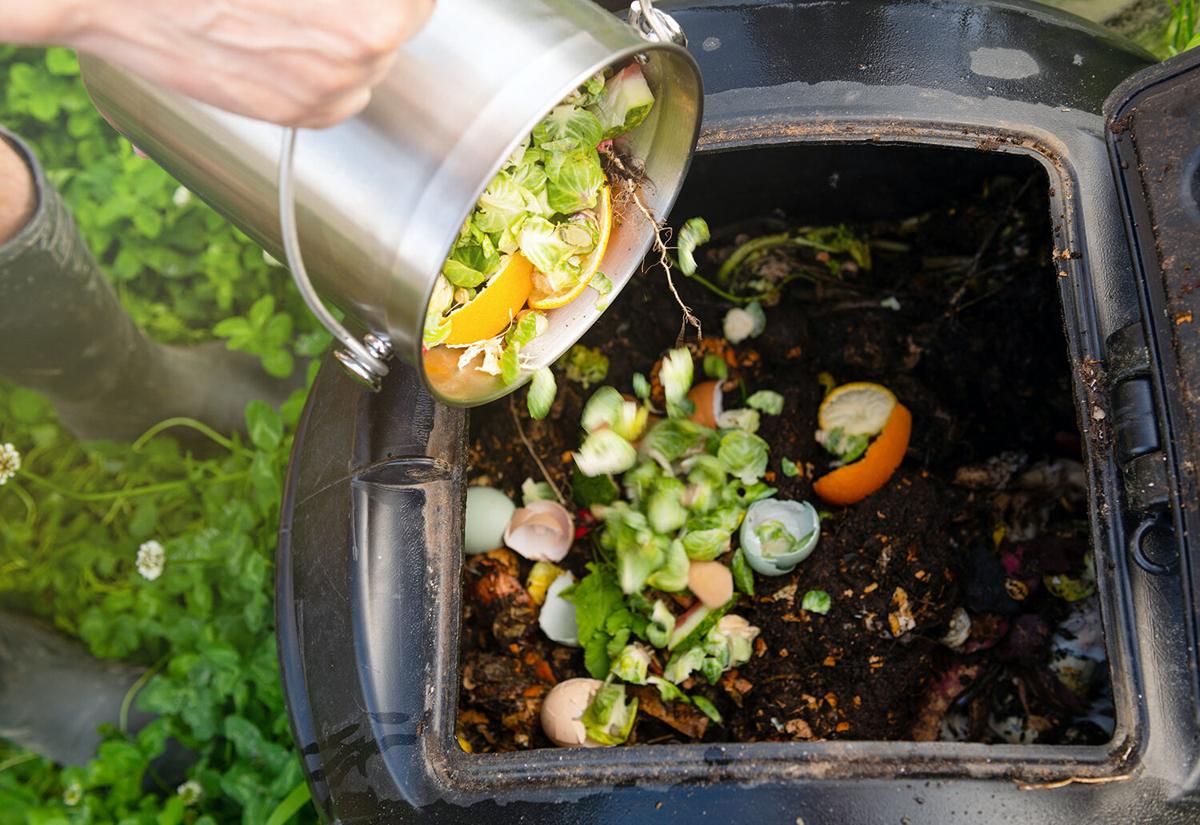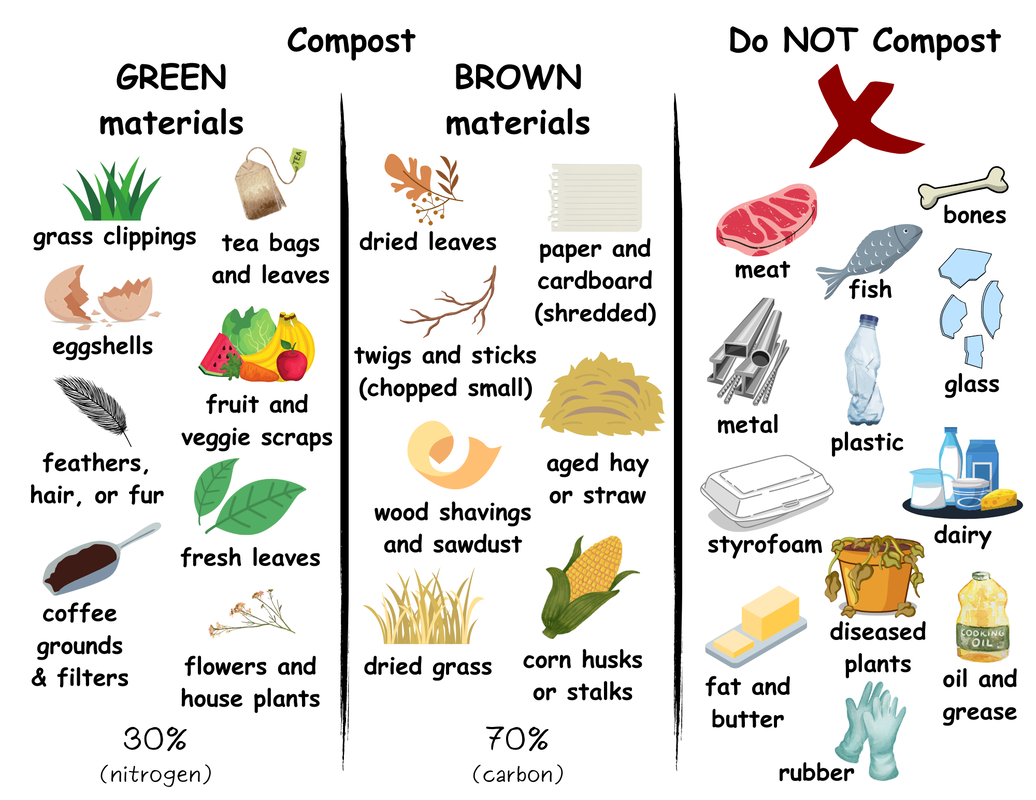The Ultimate Guide to Using Compost for a Vegetable Garden: Benefits, Tips, and Best Practices

Composting is a transformative practice that enriches soil, promotes healthy plant growth, and minimizes waste. In this ultimate guide, we will explore the numerous benefits of incorporating compost into your vegetable garden, from improving soil structure to enhancing nutrient availability. You’ll learn practical tips for creating your own compost, selecting the right materials, and maintaining your compost pile for optimal results. Additionally, we will outline best practices for applying compost effectively, ensuring your vegetable garden thrives. Whether you’re a seasoned gardener or a beginner, this guide will equip you with the knowledge to make the most of compost in your gardening endeavors.
The Importance of Compost for a Vegetable Garden
Compost plays a crucial role in enhancing the health and productivity of a vegetable garden. By recycling organic waste, compost not only enriches the soil with nutrients but also improves its structure, allowing for better water retention and aeration. As a source of beneficial microorganisms, compost helps to create a balanced soil ecosystem, fostering strong plant growth and improving the overall biodiversity of your garden. Using compost in your vegetable plots can lead to healthier plants, higher yields, and reduced need for chemical fertilizers, making it an essential practice for sustainable gardening.
What is Compost?
Compost is a dark, nutrient-rich material created through the decomposition of organic matter, including food scraps, yard waste, and other biodegradable materials. This process involves microorganisms, such as bacteria and fungi, breaking down the materials into a stable form that can be used as a natural fertilizer. Compost can be made in various ways, commonly through methods like cold composting, where materials decompose over months, or hot composting, which accelerates the process with specific conditions involving moisture and temperature.
Benefits of Composting for Vegetables
Using compost in your vegetable garden provides numerous benefits. First, it enriches the soil with essential nutrients like nitrogen, phosphorus, and potassium, which are vital for plant growth. Compost also enhances soil structure, promoting better drainage and root development. Moreover, it can help suppress soil-borne diseases and pests due to its rich microbial content. Regularly adding compost can improve the long-term health of your garden and significantly increase the resilience of your plants against environmental stressors.
How to Create Your Own Compost
Creating your own compost is a straightforward process, beginning with selecting a compost bin or designated area in your garden. Fill it with a balanced mix of green materials, such as vegetable peels and grass clippings, and brown materials, like dried leaves and cardboard. Maintain the compost by turning it regularly to aerate it and ensure even decomposition. After a few months, your compost will break down into a dark, crumbly substance that can be integrated into your vegetable garden's soil to boost its fertility and structure.
What Materials Can Be Composted?
Not all materials are suitable for composting. Acceptable items include fruit and vegetable scraps, eggshells, coffee grounds, and grass clippings, which provide necessary nutrients. However, avoid composting meat, dairy products, and oily foods, which can attract pests and create odors. It's also advisable to stay away from plants that are diseased or weeds that have gone to seed, as these can introduce pathogens and unwanted plants into your compost. Knowing what to include and exclude is key to successful composting.
How to Use Compost in Your Vegetable Garden
Once your compost is ready, it can be used in various ways in your vegetable garden. Mix it into the soil before planting to improve its fertility, or use it as a top dressing around existing plants to provide a nutrient boost. Compost can also be used to create compost tea, a liquid solution that acts as a natural fertilizer. When applied correctly, compost will not only enhance plant growth but also support healthy soil ecosystems, leading to a more vibrant and productive garden.
| Compost Material | Type | Benefits |
|---|---|---|
| Vegetable Scraps | Green | High in nitrogen |
| Dried Leaves | Brown | Improves soil structure |
| Eggshells | Mineral | Source of calcium |
| Grass Clippings | Green | Rich in nutrients |
| Coffee Grounds | Green | Includes nutrients like nitrogen |
What is the best compost for a vegetable garden?

The best compost for a vegetable garden typically combines a variety of organic materials that provide essential nutrients, improve soil structure, and support healthy plant growth. A successful compost mix should include an appropriate balance of green materials, which are rich in nitrogen, and brown materials, which are high in carbon. Here are some important aspects to consider:
Types of Materials for Compost
To create the best compost for a vegetable garden, you should utilize a diverse range of materials. Here’s a list of the most effective components:
- Kitchen Scraps: Vegetable peels, fruit scraps, and coffee grounds are excellent nitrogen sources.
- Yard Waste: Grass clippings, leaves, and small branches contribute carbon and add volume to the compost.
- Manure: Well-aged manure from herbivorous animals (like cows, horses, or chickens) enhances nutrient content.
Balancing Brown and Green Materials
Achieving the right balance between brown and green materials is crucial for effective composting. Here’s what to keep in mind:
- Ratios: A common ratio is 3 parts brown materials to 1 part green materials.
- Decomposition: Brown materials decompose slowly, while green materials break down quickly, ensuring a steady nutrient release.
- Moisture Levels: Maintaining appropriate moisture is essential—compost should feel like a damp sponge, not soggy.
Composting Methods
Different composting methods can affect the quality of your compost. Consider these options:
- Hot Composting: This method involves maintaining higher temperatures by regularly turning the compost, resulting in rapid decomposition.
- Cold Composting: A slower process that requires less effort, where materials are simply allowed to decompose naturally over time.
- Bokashi Composting: An anaerobic process that uses fermented materials, providing a different nutritional profile suitable for vegetable gardens.
Using Compost in Vegetable Gardens
Incorporating compost into your vegetable garden is vital for soil fertility and plant health. Here are some effective methods:
See also:
- Soil Amendment: Mix compost into the garden soil before planting to improve structure and nutrient availability.
- Mulching: Applying a layer of compost on top of the soil can help retain moisture and suppress weeds.
- Side Dressing: Adding compost around established plants during the growing season provides a slow-release source of nutrients.
Signs of Good Quality Compost
Identifying quality compost is essential for the health of your vegetable garden. Look for:
- Appearance: Compost should have a dark, crumbly texture, resembling rich soil.
- Odor: Good compost smells earthy and pleasant, not foul or rotten.
- Particle Size: A mixture of particle sizes provides beneficial microorganisms and improves aeration.
What compost do I use for vegetables?

To choose the right compost for your vegetables, it's essential to consider certain factors that will enhance growth, provide nutrition, and ensure healthy development. Here are the main types of compost suitable for vegetable gardening:
Types of Compost for Vegetables
Using the right type of compost can greatly impact the health and yield of your vegetable plants. Here are some common types:
- Vegetable Garden Compost: This type typically combines green materials like kitchen scraps and brown materials such as leaves to create a balanced mix.
- Manure Compost: Composted animal manure is rich in nutrients and can enrich the soil, but it should be well-rotted to avoid burning plants.
- Peat-based Compost: While light and moisture-retentive, peat can have environmental concerns due to its harvesting methods.
- Worm Castings: Vermicompost is highly beneficial as it contains essential nutrients and beneficial microorganisms.
- Store-bought All-Purpose Compost: These mixes are formulated for general use, often containing a blend of peat, bark, and composted materials.
Benefits of Using Compost in Vegetable Gardens
Compost offers numerous benefits that enhance vegetable growth and overall garden health. Here are some key advantages:
- Nutrient-Rich: Compost provides a slow-release source of nutrients that are essential for plant growth.
- Improves Soil Structure: It enhances soil aeration and drainage, which helps root development.
- Enhances Moisture Retention: Compost can retain moisture, reducing the need for frequent watering.
- Encourages Microbial Activity: A healthy compost encourages microbes that promote nutrient uptake and decomposition.
- Reduces Waste: Composting kitchen and garden waste helps reduce landfill contributions while providing a valuable garden resource.
How to Make Your Own Compost for Vegetables
Creating your own compost can be a rewarding process. Follow these steps for efficient composting:
- Choose a Compost Bin: Select a bin that will accommodate your waste and allow for air circulation.
- Add Green and Brown Materials: Balance nitrogen-rich greens (kitchen scraps, grass clippings) with carbon-rich browns (leaves, straw).
- Maintain Moisture: Keep your compost slightly moist, similar to a sponge, but not soggy.
- Turn the Compost: Aerate your compost regularly to speed up decomposition and prevent odors.
- Harvest When Ready: Compost is ready when it is dark, crumbly, and earthy-smelling, usually within a few months.
Best Practices for Applying Compost to Vegetable Gardens
Application techniques can influence the effectiveness of compost in the garden. Consider the following best practices:
- Top-Dressing: Spread a layer of compost on the soil surface around plants to provide nutrients without disturbing roots.
- Mixing with Soil: Before planting, mix compost into garden beds to improve soil fertility.
- Compost Tea: Make a liquid fertilizer by steeping compost in water for a nutrient-rich solution.
- Timing: Apply compost in the fall or early spring to allow nutrients to integrate before planting.
- Avoid Over-Application: Too much compost can lead to nutrient imbalances; stick to recommended amounts.
Considerations for Specific Vegetables
Different vegetables may have specific compost needs, making it essential to adjust your approach accordingly. Here’s what to keep in mind:
- Leafy Greens: These vegetables thrive in compost that is high in nitrogen, promoting lush growth.
- Fruit-bearing Plants: Require compost with adequate potassium; ensure you provide more mature compost.
- Root Vegetables: These plants prefer loose, well-aerated compost to promote healthy root growth.
- Legumes: Additional nitrogen can benefit legumes; consider adding inoculants to the compost.
- Herbs: Often prefer less nutrient-dense compost; avoid over-fertilizing to maintain flavor.
Should you put compost in a vegetable garden?

Yes, you should definitely put compost in a vegetable garden. Compost is an organic material that provides essential nutrients to the soil, improves soil structure, and enhances its ability to retain moisture. When used in a vegetable garden, compost not only supports plant growth but also promotes beneficial microbial activity in the soil, which can lead to healthier plants. Here are some of the key benefits and considerations when adding compost to your vegetable garden.
Benefits of Compost in Vegetable Gardens
Adding compost to your vegetable garden offers numerous advantages, including:
- Nutrient Supply: Compost is rich in essential nutrients that are vital for plant growth, such as nitrogen, phosphorus, and potassium.
- Soil Structure Improvement: Compost helps break up compacted soil and enhances its texture, resulting in better aeration and root development.
- Microbial Activity: The addition of compost fosters beneficial microorganisms that can help in decomposing organic matter, enhancing soil fertility.
How to Make Compost
Creating your own compost is a straightforward process. Here are the basic steps:
- Gather Materials: Collect organic waste such as vegetable scraps, grass clippings, and leaves.
- Balance Carbon and Nitrogen: Ensure a ratio of about 3:1 of carbon-rich materials (brown materials like dried leaves) to nitrogen-rich materials (green materials like food scraps).
- Maintain Moisture and Aeration: Turn the compost pile regularly to aerate it and keep it moist but not soggy.
When to Apply Compost
Knowing when to apply compost can significantly impact your vegetable garden. Consider the following:
See also:
- Before Planting: Add compost to your garden beds during soil preparation in the spring or fall to boost nutrient levels.
- Top Dressing: Apply a thin layer of compost on the surface around established plants to provide ongoing nourishment.
- Post-Harvest: Incorporate compost into the soil after harvest to replenish nutrients for the next planting season.
Types of Compost for Vegetable Gardens
There are various types of compost you can use, and each has its own benefits:
- Homemade Compost: This is made from kitchen scraps and yard waste, offering a cost-effective and customizable option.
- Store-Bought Compost: Commercially produced compost can be sourced from gardening centers and offers a consistent nutrient profile.
- Worm Castings: Composed of worm excrement, this type is especially rich in nutrients and can further enhance soil fertility.
Potential Drawbacks of Using Compost
While compost has many benefits, it's important to be aware of potential drawbacks to manage them effectively:
- Weed Seeds: If not properly processed, compost can contain weed seeds that may germinate in your garden.
- Imbalance of Nutrients: Over-application can lead to nutrient imbalances or toxicity, harming plant growth.
- Pathogen Risk: Incomplete composting may harbor pathogens that can affect plant health; ensuring compost is well-decomposed is crucial.
What vegetables not to put in compost?

Composting is an excellent way to recycle kitchen waste and enrich garden soil, but not all vegetables are suitable for composting. Certain types can attract pests, create odors, or lead to imbalances in the compost pile. Here’s a detailed look at what vegetables you should avoid putting in compost.
Vegetables That Attract Pests
Some vegetables can be magnetic to pests, making them unsuitable for composting. By composting these items, you might inadvertently invite unwanted critters into your compost pile and garden.
- Potatoes: Storing potato scraps or whole potatoes can attract rodents and insects.
- Corn: Corn cobs and husks can draw in pests that feed on decaying plant material.
- Onions: The strong smell of onions may not only upset the compost balance but also attract pests that thrive on decomposing food.
Fruits and Vegetables with High Moisture Content
High moisture content can lead to excessive slime and odor in your compost pile. Certain vegetables, due to their water-rich nature, can cause the compost to become overly wet and hinder aeration.
- Watery Vegetables: Items like cucumbers and zucchini release a lot of moisture and can create a soggy compost mix.
- Tomatoes: When decomposing in large quantities, tomatoes can create a mushy mess that attracts pests.
- Cabbage: Like tomatoes, cabbages are high in moisture and can lead to fermentation if composted in excess.
Cooked Vegetables
Cooked vegetables often contain oils, spices, and salt that can disrupt the natural decomposition process and draw unwanted organisms. They can lead to an unbalanced compost pile.
- Leftovers: Foods like stir-fries or baked dishes should be avoided as they may contain oils and seasoning.
- Potato Peels: Especially those that have been cooked, can attract unwanted pests.
- Processed Veggies: Items from the store like pickles or canned vegetables often contain preservatives that are not suitable for compost.
Diseased or Infested Vegetables
Putting diseased or infested vegetables in your compost pile can spread pathogens and pests, compromising your compost quality and health of plants in your garden.
- Infested Greens: Remove any greens that show signs of infestation to prevent it from spreading in your compost.
- Fungus-Infected Vegetables: Vegetables affected by fungal infections can introduce pathogens into the compost.
- Blighted Plants: Tomatoes and potatoes with blight can carry diseases into your compost pile, eventually affecting healthy plants.
Vegetables with Strong Odors
Some vegetables produce strong smells during the composting process, which can be unpleasant and attract pests. These odors can also create an unfavorable composting environment.
- Garlic: Similar to onions, garlic has a potent odor that can disrupt the composting process.
- Radishes: Certain varieties emit strong odors that may be unpleasant for neighbors and attract pests.
- Brussels Sprouts: As they decompose, Brussels sprouts can produce a foul smell, making them unsuitable for composting.
Questions from Our Readers
What are the benefits of using compost for a vegetable garden?
Using compost in a vegetable garden offers numerous benefits, including improved soil health, enhanced nutrient availability, and better moisture retention. It helps create a rich ecosystem in the soil, promoting the growth of beneficial microorganisms that aid in nutrient uptake and plant growth. Additionally, compost can reduce the need for chemical fertilizers, making your gardening practices more sustainable.
How do I make compost for my vegetable garden?
To make compost for your vegetable garden, start by collecting organic materials such as fruit and vegetable scraps, coffee grounds, grass clippings, and leaves. Layer these materials in a compost bin or pile, ensuring a mix of green (nitrogen-rich) and brown (carbon-rich) materials. Maintain moisture and aeration by turning the pile regularly, and within a few months, you’ll have a rich, dark compost ready to enrich your soil.
When is the best time to add compost to my vegetable garden?
The ideal time to add compost to your vegetable garden is in the spring, before planting, and in the fall after harvesting. Incorporating compost in the spring helps establish a nutrient-rich environment for new plants, while adding it in the fall allows it to break down over the winter, improving soil fertility for the next growing season.
How much compost should I use in my vegetable garden?
A general guideline is to add about 2 to 4 inches of compost to the top of your garden beds. This amount can vary based on soil quality and the specific needs of your plants. Mixing compost into the top few inches of soil helps ensure that nutrients are evenly distributed and readily available for your vegetables.
See also:

If you want to read more articles like The Ultimate Guide to Using Compost for a Vegetable Garden: Benefits, Tips, and Best Practices, we recommend you check out our Compost category.
Leave a Reply
Related Articles